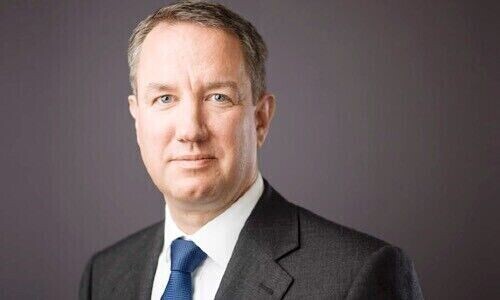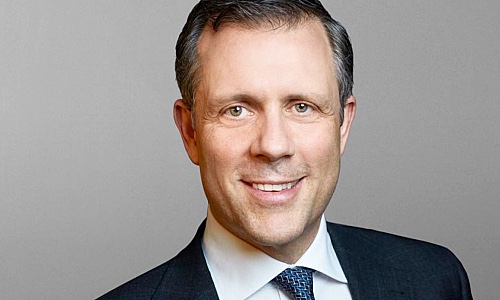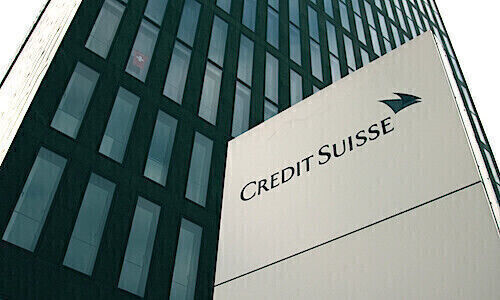One of the biggest clients of Credit Suisse's Swiss investment bankers last year was the bank itself. Because it is defending its market leadership, the team has been practically spared job cuts within the Group.
While in private conversations, many Credit Suisse bankers describe last year with horror, Jens Haas (pictured below) comes to a different conclusion. To be sure, the past twelve months were significantly leaner than the previous year, 2022 was by no means as bad as some headlines might have suggested, the head of Swiss investment banking told media representatives Wednesday.
Most importantly, Credit Suisse was able to defend its leading position in the Swiss business if one follows the bank's interpretation of data from Dealogic.

(Image: Credit Suisse)
Pole Position
According to the report, Credit Suisse maintained its top position in domestic investment banking with a share of more than 15 percent of the total revenue pool ahead of arch-rival UBS and JP Morgan. Credit Suisse earned about $165 million in its capital markets business and advising companies on mergers and acquisitions (M&A).
The pole position will be defended in 2023, Credit Suisse Switzerland CEO André Helfenstein (pictured below) confirmed at the event. «We want to be the leaders in Swiss investment banking,» he said. The business is very important for the Swiss bank, with private bankers, corporate client experts, and investment bankers working hand in hand to serve wealthy entrepreneurs.

(Image: Credit Suisse)
Shallower Fee Pool
Although Haas will sit on the executive committee of the global investment bank spinoff CS First Boston, the Swiss business will be firmly planted within the Swiss bank following last fall's strategy adjustment. Unlike investment banking colleagues in Europe, overseas, and Asia, Haas' teams are not affected by the major job cuts at the banking group. The Swiss investment bank is «practically exempt from this,» Helfenstein replied to a question from finews.asia.
The only area where the Swiss unit's dealmakers will face cutbacks is in terms of salary. «We pay for performance, and 2022 was less of a good year than 2021,» Haas said. According to media reports, the bonus pool will be cut by half in February.
According to Dealogic's calculations, investment bank fees in Switzerland are down more than 26 percent compared to 2021. Except for the M&A business, all business areas have shrunk significantly, with the initial public offerings (IPOs) business, in particular, having suffered.
Negative Bottom Line
Nevertheless, last year was not all bad for Credit Suisse in the equity capital markets (ECM) business. In December, the Swiss investment bankers coordinated the 4 billion Swiss franc ($4.4 billion) capital increase, coordinating with 19 other financial institutions to guarantee the new shares were sold.
It was a high-stakes transaction for the bank, which one could assume led to lucrative fees for the investment banks. Mark Hammarskjold, head of ECM, reported participation was highly sought after. «We received many 'love letters' with applications,» he said. For the group, however, the transaction was a net loss because of the fees paid to the participating banks.
Two Different Halves
Haas now expects a bifurcated year for Credit Suisse. He fears the first half will see a lot of disruptive noise likely causing volatility in business, with companies holding back on big bets. The second half of the year could be marked by a return to normal, which if that transpires, postponed transactions would be back on the agenda.


























